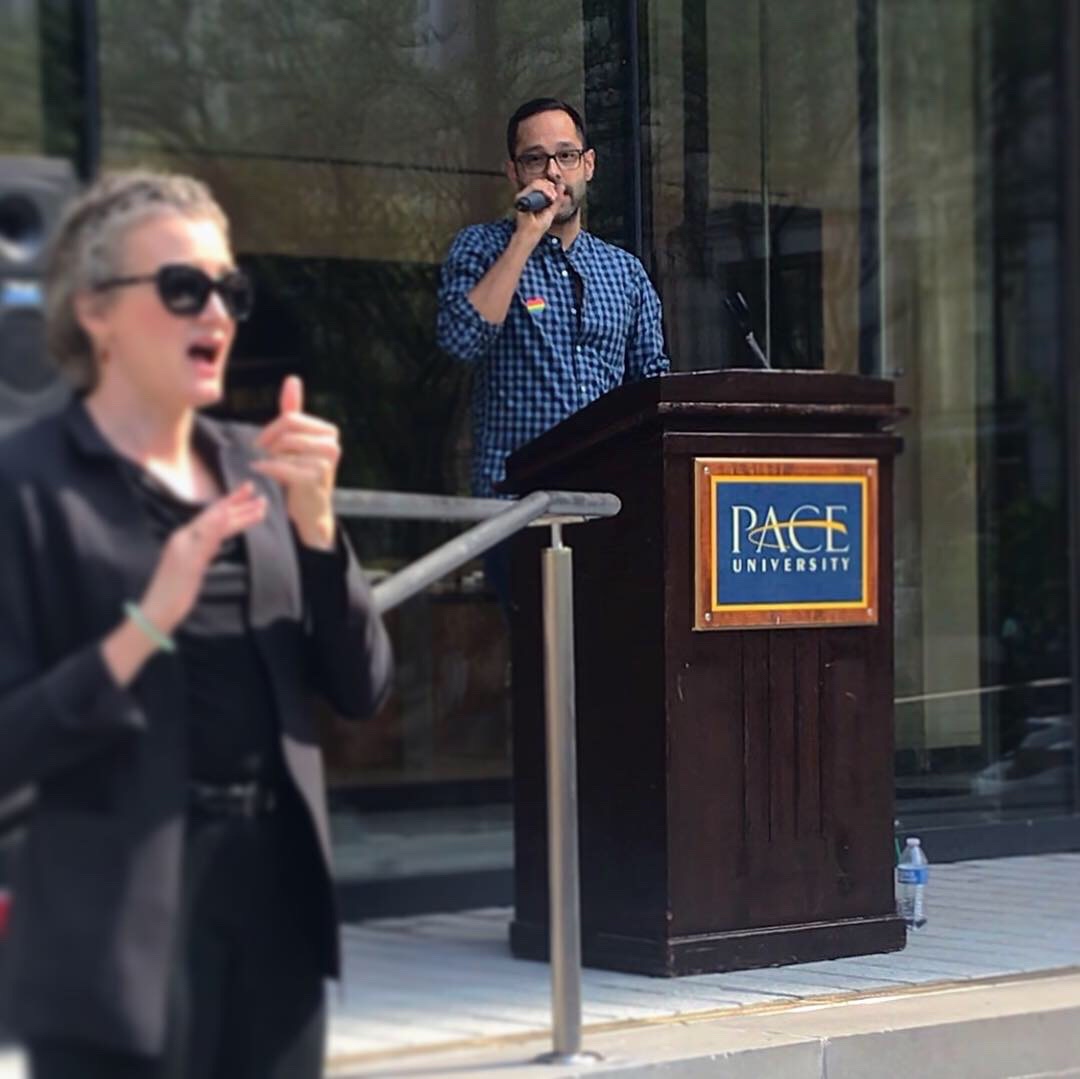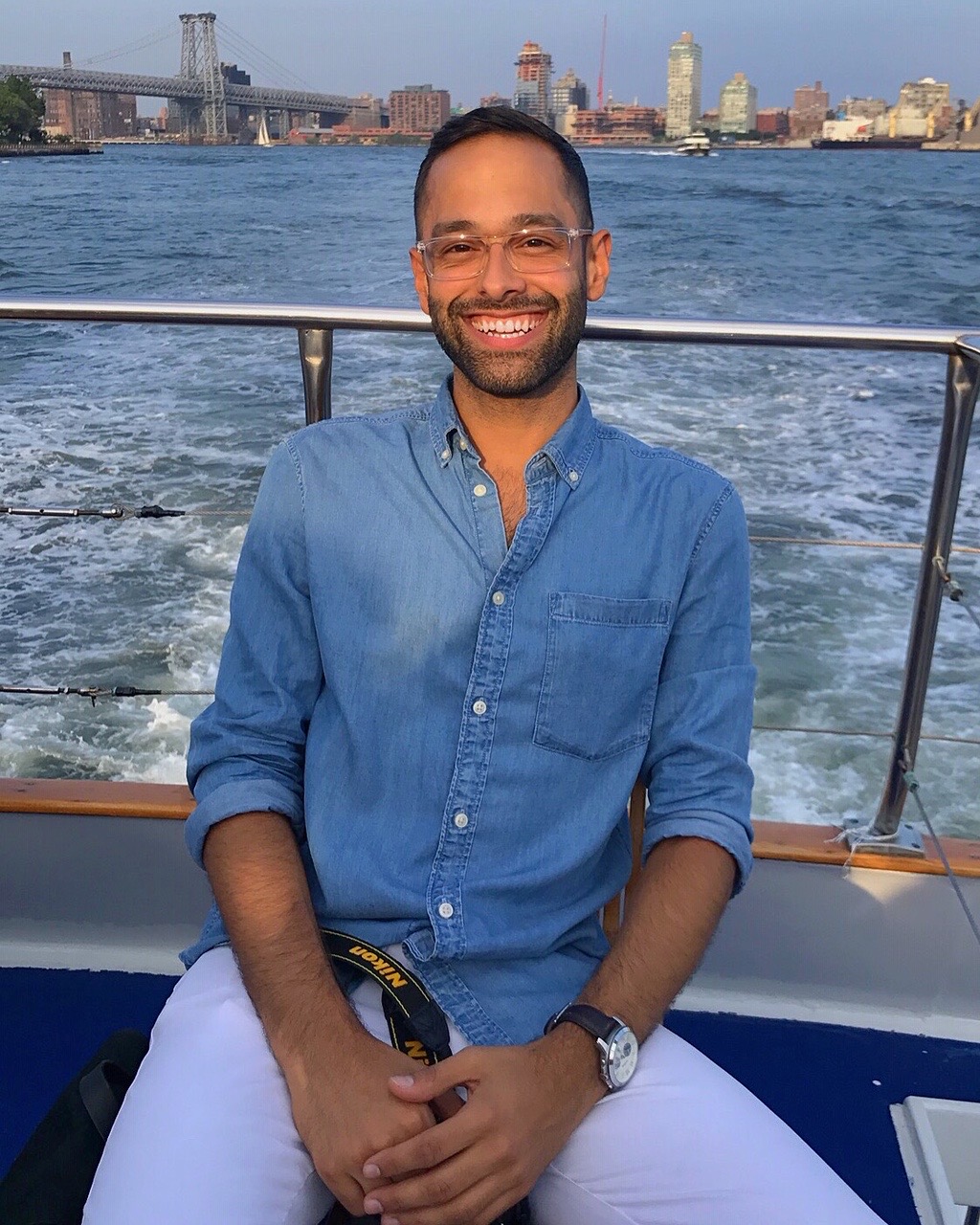Jean K. Rivera Irizarry
When Jean isn't doing outreach or working in the lab, he loves exploring the city with his camera, sharing science on Instagram (@TheBrainScientist) and spending time with family and friends!

Jean K. Rivera Irizarry is a graduate student at Weill Cornell Medicine where he specializes in Neuroscience research.
Jean grew up in Puerto Rico and recounts the transition from his small, close-knit island community to the vast New York City as a “culture shock”. As a child, Jean spent most of his free time volunteering and giving back to his community in various ways. He describes this as a constant theme in his life—one that he made sure to incorporate into his professional life and long-term goals—and feels strongly that in order to excel in something, passion is critical.

What’s your favorite thing about being a scientist? Did you always want to be a scientist?
“One of my biggest passions as a scientist is using my voice to increase representation of historically underrepresented groups in science. Heterogeneity in gender, sexual orientation, socioeconomic status, and race are known to promote innovation, lead to better problem-solving and are important for long-term economic growth, yet there is a large disparity when it comes to diversity in STEM. I’m hopeful that my research helps shine light into the neurocircuitry of addiction, allowing us the better understand and treat the millions afflicted by this debilitating disease. I hope that my advocacy helps to change the perception and stigma associated with addiction, allowing people to be less judgmental and more understanding. But most of all, I hope to increase awareness and spark productive conversations moving us closer to bridging the gap in representation in STEM.”

Do what you love and what you are truly passionate about. Graduate school isn’t easy but it is definitely quite rewarding. I am only in the beginning stages of my PhD and I am sure there will be many more bumps in the path ahead. I truly enjoy the challenges that graduate school brings and the joys of overcoming those challenges.
If you could give one piece of advice to young scientists or students, what would it be?
“Don’t be afraid to try new things and definitely don’t be afraid to fail. As a scientist, you will encounter and overcome failures in many occasions throughout your career. Believe in yourself and find a support system that will help build you up to achieve your goals.”
Can you think of a specific time when you found science or pursuing science challenging?
“Relocating to NYC was probably the most difficult time in my scientific career. Leaving all of your loved ones and moving to a big new city was difficult, but not impossible. Finding good mentors and a support system was instrumental during my first years in NYC. Without their support and guidance, I would have never overcome some of the major hurdles I’ve encountered (and will likely encounter more of) during my PhD.”

Do you want to share anything else?
“The best advice I can give is for those that are considering applying to graduate school–research is key! Grades and GRE scores are considered (and important), but I believe the most important component in any application for graduate studies in biomedical sciences has got to be research experience. Not only will extensive research experience provide you with the reassurance that a research intensive graduate program is the right fit for you, but it shows dedication, resilience and passion, which is exactly what you want to convey to the admissions committee.”
